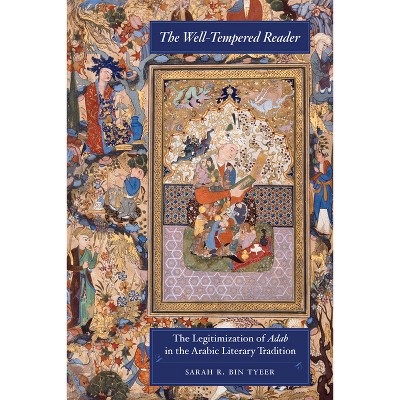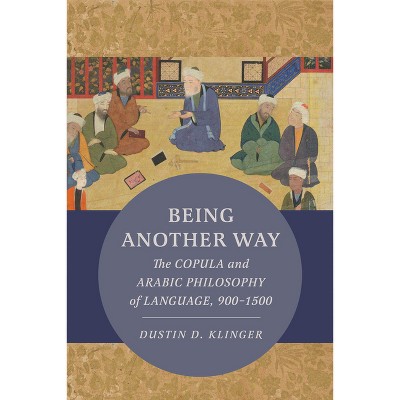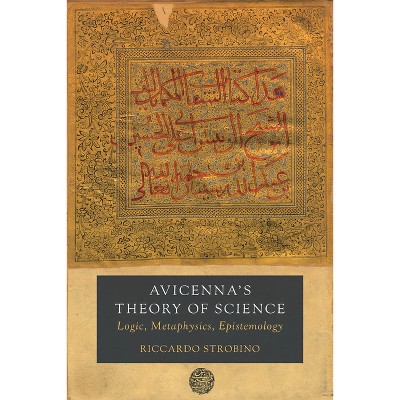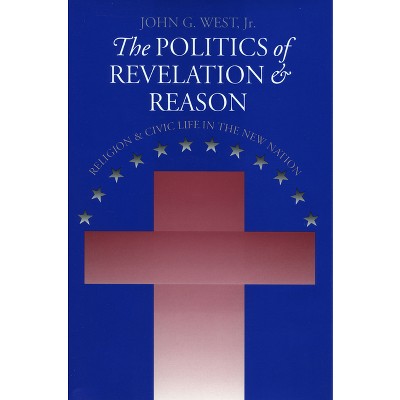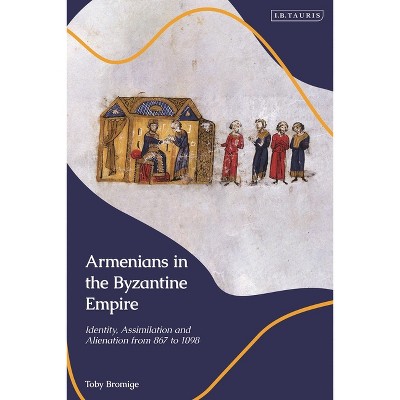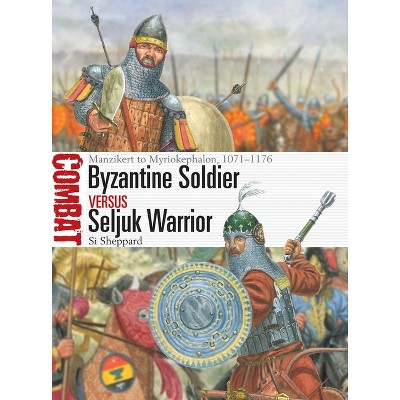Sponsored

Reason and Revelation in Byzantine Antioch - (Berkeley Postclassical Islamic Scholarship) by Alexandre M Roberts (Hardcover)
In Stock
Sponsored
About this item
Highlights
- What happened to ancient Greek thought after Antiquity?
- About the Author: Alexandre M. Roberts teaches in the Department of Classics at the University of Southern California.
- 376 Pages
- History, Byzantine Empire
- Series Name: Berkeley Postclassical Islamic Scholarship
Description
About the Book
"This book investigates the medieval legacy of ancient science and philosophy in the Eastern Roman ('Byzantine') Empire and the Islamic World, and how Abrahamic religions shaped and were shaped by scholars' reception and adaptation of ancient educational traditions. It carries out this investigation through the lens of an eleventh-century Christian theologian and prodigious translator from Greek into Arabic, °Abdallåah ibn-al-Faòdl al-Anòtåakåi. Living in Antioch-on-the-Orontes in Northern Syria, under Byzantine rule from 969 until 1084, Ibn-al-Faòdl was poised between the Byzantine Empire that controlled his city and the Arabophone cultural universe of Syria-Palestine, Fatimid Egypt, Mirdasid Aleppo, and Abbasid-Buyid Iraq. A close look at Ibn-al-Faòdl's literary output, and especially his ambitious Greek-Arabic, Christian translation program, as preserved in medieval and early-modern manuscripts, demonstrates his engagement with ancient Greek and contemporary Byzantine and Arabic philosophy, science, and literary culture. This opens a window onto a shared scholarly culture of robust intellectual curiosity in the service of tradition that had a lasting role in Eurasian intellectual history"--Book Synopsis
What happened to ancient Greek thought after Antiquity? What impact did Abrahamic religions have on medieval Byzantine and Islamic scholars who adapted and reinvigorated this ancient philosophical heritage? Reason and Revelation in Byzantine Antioch tackles these questions by examining the work of the eleventh-century Christian theologian Abdallah ibn al-Fadl, who undertook an ambitious program of translating Greek texts, ancient and contemporary, into Arabic. Poised between the Byzantine Empire that controlled his home city of Antioch and the Arabic-speaking cultural universe of Syria-Palestine, Egypt, Aleppo, and Iraq, Ibn al-Fadl engaged intensely with both Greek and Arabic philosophy, science, and literary culture. Challenging the common narrative that treats Christian and Muslim scholars in almost total isolation from each other in the Middle Ages, Alexandre M. Roberts reveals a shared culture of robust intellectual curiosity in the service of tradition that has had a lasting role in Eurasian intellectual history.
From the Back Cover
"Roberts provides the first comprehensive account of the intellectual and social milieu in Antioch during the Byzantine reconquest of the city, focusing on the outstanding theologian and translator Abdallah ibn al-Fadl. Much of Roberts's analysis is completely fresh, often based on manuscripts that he has edited and translated for the first time. This book is a veritable tour de force."--Alexander Treiger, Associate Professor of Religious Studies, Dalhousie University. "A fascinating book revealing the importance of intellectual exchanges between Byzantium and the Islamic Empire. Ibn al-Fadl translated Greek religious and theological texts, but his notations highlight the impact of the Arabic Aristotelian philosophical tradition and its vocabulary. Roberts shows the unique role Antioch played in these exchanges, making a welcome contribution to an emerging area of research."--Thérèse-Anne Druart, Professor of Medieval Philosophy in Islamic Lands, The Catholic University of AmericaReview Quotes
"Ultimately Reason and Revelation sharpens our understanding of "translation" in the premodern period and points the way forward for further scholarship on the intricacies and implications of translation."-- "Studies in Late Antiquity"
"Roberts's is an important book, not just for its many new editions of texts by Ibn al-Fadl,̣ but also for the light it sheds on his life and historical context. Scholars of Christian Arabic will find it essential reading, as will those investigating Byzantine intellectual culture and its interactions with the world of Islam."-- "Speculum"
"Reason and Revelation remains a truly impressive scholarly accomplishment. This rich portrait of a previously neglected figure, requiring impressive command of both classical literature and Arabic manuscript studies, should inspire future work on the fascinatingly multi-lingual, multi-religious traditions of learning that bridged the medieval Mediterranean's many worlds."-- "The Catholic Historical Review"
"This monumental work will be of great interest to scholars. . . .Reason and Revelation is a welcome contribution to the intellectual history of the pre-modern Middle East that should inspire a great deal of scholarship to come."-- "Medieval Encounters"
"Roberts has produced not only an impressive work of intellectual and social history but also an accomplished exemplar of the exploration of unpublished sources with insightful philological and linguistic examinations."
-- "Al-'Usur al-Wusta"About the Author
Alexandre M. Roberts teaches in the Department of Classics at the University of Southern California.





